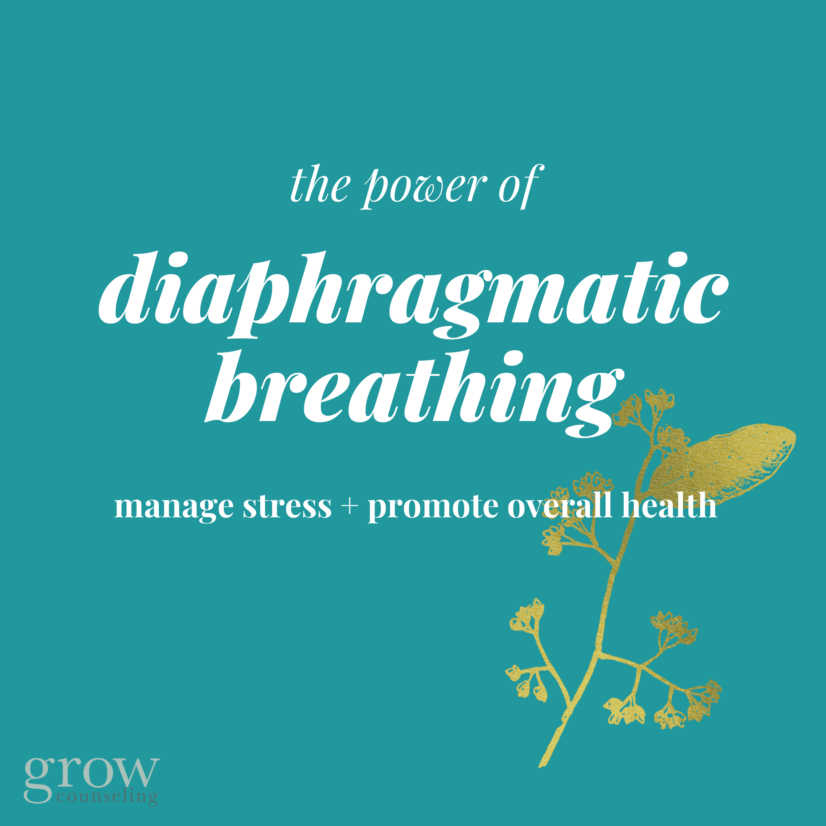Have you ever noticed that your breathing becomes quicker and shallower before an important test, presentation, or interview? When we feel stressed, overwhelmed, or anxious our body responds by activating the fight or flight response. During this time, the sympathetic nervous system prepares the body to either fight the stressor or flee from it. Our body mobilizes energy so we can engage in physical activity and our heart rate increases. Along with an increased heart rate comes short, shallow breaths.
This type of breathing can be helpful if we need energy to fight or flee from a physical threat such as a bear chasing us, yet breathing like this long-term can have a negative impact on our physical and mental health.
When we are stressed, our bodies release a hormone called cortisol. Too much cortisol or too little cortisol can negatively impact the body and mind. Thus, finding ways to manage stress, such as deep breathing, is important to our overall health.
Breathing with our diaphragm rather than our chest can encourage deeper breathing which can result in lower blood pressure, reduced heart rate, and decreased stress. It also helps our muscles to relax. Focusing on our breath brings us to the present moment and helps ground us.
You can practice diaphragmatic breathing by breathing in through your nose and out through your mouth, noticing how your belly expands with each inhale and deflates with each exhale.
Integrating diaphragmatic or “belly breathing” into your everyday routine can help you manage stress and promote overall health.
Interested in learning more about diaphragmatic breathing and integrating it into your daily routine? There are several apps, such as Headspace and Calm, as well as online videos you can check out to help guide you through a deep breathing exercise.
One of our counselors at GROW Counseling would be happy to meet with you to discuss stress management and teach you techniques, such as diaphragmatic breathing, to help you cope with stress.
Written by: Mary Anne Sylvester

